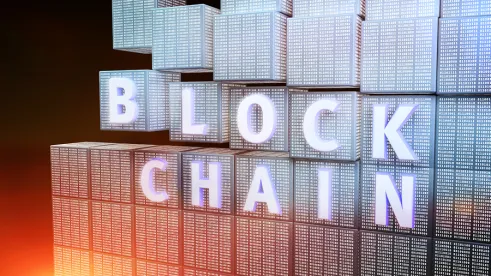Two amendments have been proposed to the Delaware General Corporation Law (the “DGCL”) to permit corporate record keeping utilizing blockchain databases (the “Blockchain Amendments”). Specifically, “stock ledger” is to be defined in Section 219 of the DGCL to include ledgers “administered by or on behalf of the corporation,” in order to permit a record keeping system utilizing blockchain databases. Section 224 of the DGCL is to be similarly amended regarding all corporate records, and provide that such records may be kept on “one or more electronic networks or databases (including one or more distributed electronic networks or databases).”
During the mid-1990s, law firms were loath to adopt technological advances, including distributing documents via the internet. While clients readily utilized the instant delivery system provided by email and email attachments, law firms clung to fax technology throughout the 1990s, concerned that “hackers” would somehow be able to intercept their privileged client communications.
Perhaps based on that experience, and not wanting to seem out of step, law firms rapidly issued articles describing and applauding the Blockchain Amendments. But many of these articles evince a lack of understanding for the underlying technology of blockchain databases, which is complex and not easily explained or understandable. Furthermore, these articles generally fail to provide examples of problems that have occurred with stock ledgers controlled by a central authority (e.g., a corporate secretary or a stock transfer company) that a stock ledger utilizing a blockchain data base would have avoided. Filling that void, we recently blogged here about the many benefits that can be obtained by adopting Blockchain-based stock ledgers and cap tables.
Expected benefits aside, maintaining corporate records utilizing a blockchain data base is not something that is appropriate (or necessary) for all Delaware corporations, and may prove too arduous or expensive. For example, a newly-formed company that has just issued stock to its two founders does not need to take the extra step of establishing a decentralized distributed network for all its corporate records, or pay steep fees to a company like NASDAQ for its blockchain products. The cost and effort needed will decrease as new blockchain-based corporate record providers enter the market.
So let’s focus on a situation where blockchain databases can provide a better solution than the current system: stock transfers. Earlier this year, the Securities and Exchange Commission voted unanimously to shorten the settlement time frame for security trades to two business days. Modern technology permits security transfers to actually happen in milliseconds, yet the settlement does not happen for two business days because of the currently inefficient system of verifying both ownership of the securities (especially when physical securities are involved) and availability of cash for the purchase. As a result (strangely enough), most trades do not actually settle because the securities get retraded during the settlement period. Firms like Accenture have commented that the settlement time on these trades, if they utilized blockchain databases, could be reduced to seconds (and most all trades would thus actually settle before the securities are retraded)..
For this reason, a newly-formed Delaware corporation may want to adopt uncertificated shares from the get go because in order for blockchain to provide this speedy settlement system, a company cannot have any physical stock certificates. If a company has any straggling physical stock certificates, the blockchain would not provide the complete record of all it stock transactions because the physical certificate transfers would be outside its purview. Currently, the DGCL does not provide a corporation with the power to require that all stockholders convert their physical certificates to uncertificated shares. However, once those certificates are surrendered, assuming the corporation’s board has adopted a resolution mandating the switch to all uncertificated shares (to the extent permitted by Delaware law), they can be turned into uncertificated shares.
Thus, even though a start-up company may not “need” to establish or pay to get on blockchain databases, it may make sense for it to always use uncertificated shares so that it can take advantage of the advances provided by blockchain technology when the time is right.



 />i
/>i
